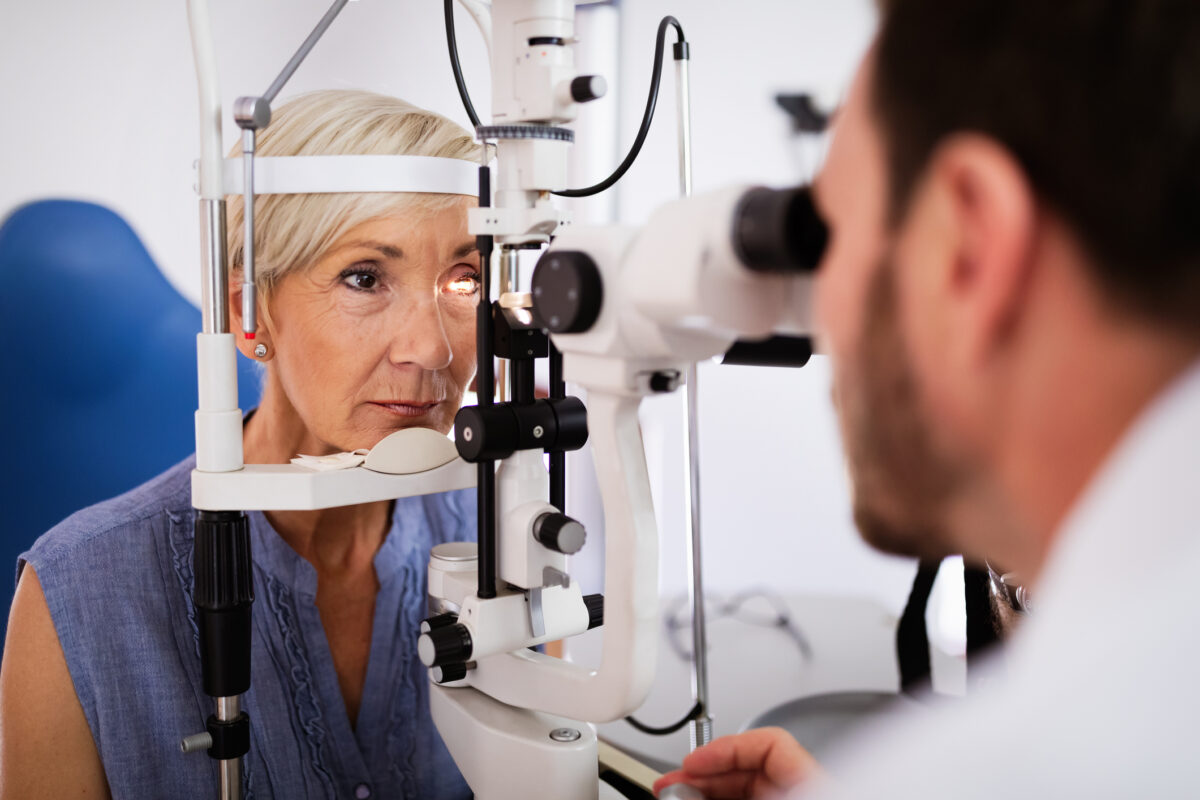Whether it’s for you or a loved one, being a healthcare advocate is important. In fact, the hallmarks of healthcare advocacy include:
- Understanding what a procedure or diagnosis entails
- Speaking up when something feels off
- Participating as a patient
While you may understand what it means and why you should do it, many patients don’t know how to be a healthcare advocate for themselves or a loved one.
“I spend nearly every day advocating for my patients’ healthcare, and more importantly, trying to teach them how to advocate for themselves,” says Jami Carder, a seasoned RN who currently works in home care. “It’s too bad the solution isn’t as easy as telling them, be sure to advocate for yourself! If it was, more people would be doing so.”
To start your journey to becoming a healthcare advocate for yourself and your loved ones, read through our sections below.
Five Reasons Being a Healthcare Advocate Is so Hard
Before we get into the how-to list, let’s look at some of the barriers to effective healthcare advocacy.
1. We Don’t Understand the Healthcare System
It’s overwhelming for so many reasons, including the:
- Labyrinth of payers, providers and patients
- Headaches of insurance billing, paperwork, claims and deductibles
- Confusing medical jargon
- Ever-changing state and federal laws
“Healthcare is a complicated and complex system—one that even those who have been in it for years find hard to understand and navigate,” says Kie Copenhaver, RHIA, CSA, RCFE, a Certified Senior Advisor with over 20 years of experience in healthcare.
2. We Don’t Recognize the Value of Our Voice
You know your body best. A doctor may tell you that everything’s fine, but only you can know what your baseline—and therefore anything that moves away from it—feels like.
When healthcare consultant Angel Cellucci works with clients (after 40+ years in the industry, primarily in nursing), she teaches them how to have a more collaborative relationship with their providers. But she also stresses the importance of patient authority. “They need to know that they are the most powerful person in the exam room; their autonomy is more important than their anatomy,” she says.
3. We Equate Asking Questions With Challenging the Provider’s Authority
While collecting research and anecdotes for her book The Health Care Consumer’s Manifesto: How to Get the Most for Your Money, author Deb Gordon learned that people often don’t advocate because they don’t even know they can.
“This usually stems from a deeply ingrained authority bias—where the patient equates asking questions with challenging the doctor or provider’s authority,” Gordon says.
4. We Equate Feeling Ill or Being Injured With Weakness
Jami Carder has seen this firsthand, particularly among older male patients.
She remembers once visiting a patient to check on his blood pressure. “At the end of the visit, I happened to notice a cut on his waist and after he pulled up his shirt, saw that his entire back was bruised and raw,” she recalls. “He had fallen on the fireplace the night before and hadn’t told anyone. ‘It’s fine,’ he told me.”
5. We Don’t Want to Be a Burden
Carder also witnessed similar occurrences with patients—many of them female—who didn’t want to be a burden on others or labeled as a complainer. They’ll keep their medical concerns to themselves, often not even telling family members, she reports.
“Unfortunately, it’s quite difficult to remove this ingrained conditioning. They’ve spent decades—their entire lives—believing this is normal,” Carder says.

Five Practical Ways to Be an Effective Healthcare Advocate
What’s one of the best ways to become more comfortable with the challenging practice of self-advocacy? You can start by advocating on behalf of another person. And if you’re a caregiver, healthcare advocacy is a critically important role.
“Most people feel much more comfortable advocating and standing up for someone else—particularly someone they love—than they do for themselves,” says Carder. So, when working with home care clients, she’s found success by bringing loved ones into the conversation and making healthcare advocacy a group effort. “I teach family members what to look for, where to find help and the best way to advocate,” she says.
As you prepare for your own or a loved one’s next healthcare visit, keep these tips from industry experts in mind.
1. Do Research Ahead of Time
With 42 years of experience as an oncology nurse, Gail Trauco, RN, BSN-OCN, knows the healthcare system inside and out. “The first step to being a healthcare advocate for yourself or someone else is to develop knowledge of the healthcare system,” the long-time patient advocate recommends. “You should spend a couple of hours researching medical bill terminology and insurance processes. Become familiar with your illness, medications and planned treatment plan,” says Trauco.
Sarah Johnson, RN, and the Health Ambassador for Family Assets, an eldercare and senior living resource for older adults and caregivers, recommends doing online research before sitting down with an MD. Learn about diagnoses, conditions, symptoms, treatment options, drug side effects and more. “Asking informed questions allows you to leave with more complete information about your or a loved one’s health issues or illness, which ultimately means better quality care and self-care.
“It’s also good to be aware of the ins and outs of your insurance so you can be sure if you’d have any out-of-pocket costs to pay and how much the insurance is going to cover,” says Dr. Jaydeep Tripathy, a physician for Doctor Spring with expertise in chronic care, diabetes and cardiac health.
2. Ask Questions With Confidence
Andrea Tran has worked with new moms and babies for over 38 years as an RN and lactation consultant (IBCLC), with a Master’s in Health and Wellness. There are four questions she encourages people to ask when advocating for themselves or others regarding a recommended treatment, medication, test or surgery:
- What are the benefits?
- What are the risks?
- What can happen if we wait?
- What are the alternatives to the recommended treatment?
Gayle Byck, Ph.D., is a Board Certified Patient Advocate (BCPA), Certified Senior Advisor (CSA), and the Founder and Principal Advocate for InTune Health Advocates, LLC. On her blog, Byck shares many examples of when asking a simple question led to a much different outcome—like helping an older client with advanced lung cancer opt out of an unnecessary and uncomfortable MRI.
Byck says your concerns may be medical/clinical (Are there side effects?) or they may be financial (Will my insurance cover it, or will I have to pay out of pocket?). “But either way, you have the right to understand what a doctor is recommending and why,” she says.

3. Keep Detailed Records
“It’s important to keep a record of your own just so you have a concrete list of what is known about your condition, what you want to know and if the information you currently have is up to date and true,” says Dr. Tripathy.
Long-time patient advocate and health tech founder Joan Melendez has worked in healthcare for decades now. Through her company Xcelrate UDI, Melendez is actively working with healthcare facilities, manufacturers and the FDA to improve patient safety.
“Understand how your health insurance works, what’s covered by it, what’s not and any exceptions to the rules. Along those lines, you should be able to review and maintain your own records. Don’t leave documentation and paperwork in the hands of your provider. Ask for documents, get copies of bills and paperwork, and check for errors.”
Doctors are often brilliant, well-educated and highly skilled professionals, but they’re also human beings who make mistakes or may miss something. Keeping detailed records helps both the patient and provider achieve better outcomes.
4. Lean Into Support
As a patient, there are times you may have to attend appointments, receive treatments or undergo procedures alone. But that doesn’t mean you have to manage everything—all the emotional and logistical ramifications—on your own. And if you’re a caregiver, there are still ways to support your loved ones when you can’t be in the same room.
Sometimes, a health care appointment leads to a life-changing medical diagnosis. And when it does, all the questions you came prepared with—along with your feelings of empowerment and empathy—may go out the window.
In those moments of vulnerability and uncertainty, it’s hard to think straight. “Even if you’re smart, capable and naturally self-advocating, when you’re hearing and processing health news, it helps to have someone with you who has a clear head to ask questions or take notes,” says Deb Gordon.
On the flip side, some loved ones may be too emotionally overwhelmed to ask the hard questions during the actual appointment. Take that into consideration as you choose who you’d like to accompany you—whether in person or by phone. Perhaps some friends are best to cry with and vent to later, while others are best for asking clear and direct health advocacy questions in the moment.

5. Take Time and Space to Process
Advocacy doesn’t have to be immediate: After you’ve had some time to process what you heard, discuss any notes or your own questions with a trusted friend or relative before reaching out to the provider again.
The support person you consult doesn’t have to be a medical expert. In fact, on some level, the less that person knows, the better. That way, they’ll ask questions until they understand what’s being communicated. Your caregiver or friend has the advantage of some distance from the diagnosis and therefore can ask questions more freely. And they’re motivated by the desire to support you.
Perhaps after talking with a friend or relative—who can think objectively or see things from a different angle—you have more questions of your own. And maybe you just need a few days to process the information before you take the next step of advocacy. Bottom line: your questions are important and worth answering. There’s no deadline on when they must be asked.
Most of the time, providers want to know how they can improve provider-patient communication. They value your input and want to achieve better outcomes. This helps build trust in the relationship too. “It’s usually never their intent to be confusing or dismissive,” says Gordon.
How Do You Know When It’s Time to Find a New Provider?
Tenacity is another important piece of healthcare advocacy, says Amy Goyer of her caregiving experience in this AARP piece. “Be clear about goals and believe that there are solutions. Focus on the end result you want,” she advises.
In some cases, getting to that “end result” may mean switching providers for a better fit. Maybe you’re not being heard. Maybe the concerns you’ve expressed about a loved one’s health aren’t being taken seriously. Maybe you’re getting some pushback on the questions you’re asking.
If you or a loved one are just not comfortable with a particular provider and you have the option to choose, it’s your right to switch, Gordon advises.
And sometimes, the pursuit of a second opinion offers a valuable new perspective on the subject whether it’s from a different point of view or another side of the story.
Doctors don’t always agree on the best course of treatment for patients, and that’s not necessarily a bad thing. Different provider opinions are based on a variety of factors, including their:
- Training
- Personality
- Specialty
- Experience
That said, seeking a second opinion doesn’t mean you automatically have to switch providers, or that by doing so, you’re disrespecting your provider. You’re simply collecting more data to make a well-rounded decision.
Remember too: healthcare providers aren’t perfect. “Not every patient fits neatly into a diagnosis,” says Jami Carder. “We make mistakes, and we miss things … we are human,” she says. “But if something doesn’t seem right, seek a second opinion. It is absolutely NOT disrespectful to question a medical professional.”
When a Loved One Resists Advocacy
Being a healthcare advocate for someone you love is not without its challenges. In a piece for Extra Mile, Caregiving Tips: Understanding Your Parent’s Perspective, writer and caregiver Sally Abrahms talks about the best ways to approach difficult health situations and decisions with aging parents. But her advice resonates for anyone whose role is to offer caregiving support.
“Get their ducks in a row before there’s a crisis. Have the legal documents you need signed and know where they are. Scrambling at the last minute to get them can trigger contentious exchanges…
More than anything, your parents [or the individual you’re supporting] need to feel that they are part of the process. If they’re reluctant to discuss or sign these documents, you can always take the blame (that it worries you, the adult child [or caregiver] and by signing them, they will help put you at ease).
You might want to point out something they may not have thought of: If they don’t have the proper papers, it’s possible that someone they don’t know, such as the court or healthcare workers, might end up making their care decisions.”
Conclusion
Being a Healthcare advocate for yourself may not come naturally to you. But if your child, best friend or spouse needs something, your protective instincts kick in. “There’s almost no thought before you act on their behalf,” says Deb Gordon. That’s why she often suggests this mental trick or reframe: “When advocating for yourself, imagine you’re doing it for the people you care about most.”







Dignity isn’t just a word; it’s a commitment to honoring the inherent worth and value of every person we encounter.
I am looking for info on Care Givers
And where they can receive help
Hi Gloria – Thanks for reading Extra Mile. For more information on caregiving, you can reference this section on our site.
I’m a resident assistant. I take care of residents every day. I’ve been working in the health field for 20+ years. Do I health a discount for my job?
Nice article! I will share it with several family members. Much appreciated.
There is good, practical advice for caregivers and advocates in this piece. Advocacy in a hospital setting is even more complicated. I know because I advocated for my husband through 14 separate hospitalizations — some long and life-threatening. That’s why I wrote Hospital Warrior: How to Get the Best Care for Your Loved One. I would love to tell you more about it and how it can help turn family members into successful advocates who are part of the health care team.
Great Article!. However, we had a very bad experience. We asked for help from an attorney who advertised as an Elder Care lawyer for our childless aunt who had mild dementia. The lawyer revoked the legal papers that were signed previously and made the lawn care employee the medical power of attorney. She told the neighbors to call the police if my husband came to the property. My aunt signed papers that gave the lawyer total power over her finances. No family member saw any itemized invoices. They took the money out of the reverse mortgage etc. Sometimes, my aunt was described to the police as not knowing what she was doing and at other times she was signing contracts to sell property.
I propose that “elder lawyers” need to establish a litigation in order to increase revenue, since just writing wills and so forth will not create many fees.
PS. No family member has been notified that they are beneficiaries to the trust that the lawyers set up.
Nice article! I will share it with several family members. Much appreciated.
When a loved one is hospitalized, someone needs to be there 24/7 to be certain they get the attention they need.
Arlene
My husband suffer from dementia
I am old and is becoming very hard to take care of him I cannot sleep well I am very very tired
I do not know which state you live in but EVERY state, because they get federal Medicare & Medicaid funds has an association to help older adults.
It is often called the AAA = Area Association on Aging. OR Senior Services. Their help is free.
Most States also have a Department of Health & Human agency in each county OR one that covers several counties.
These agencies can be found on line OR you can call your local library, ask for the INFORMATION DESK, then ask the person who answers for the contact information of your local Department of Health & Human Services ,Area Association on Aging, and if the person you are talking with at the library knows of any OTHER places in your town or state that might be able to assist you.
Librarians are VERY helpful and knowledgeable people .
This is an excellent article. As a retired Occupational Therapist, I know first hand about advocating for my patients in therapy by constantly educating them at every visit how to continue their exercises but how to also tell their doctors when they were and were not progressing. Now that I am retired I am so grateful for my education as I now have to advocate not only for my continued health but the health of my spouse who has Alzheimer’s. I also educate my children about how to advocate for themselves and their children. I am passing along this article to my family. Thanks for providing this information.
Leslie Price
I am having a great deal of avoidance with my Hubby as to filling out a Advanced Directive. I can’t push toooo hard or he will reject the reason for this. Whee, maybe this year?
My husband had been diagnosed with a fairly large aneurysm on his aorta and started seeing vascular surgeon. The surgeon determine that we would keep an eye on it and have an annual scan done. I told him I was not comfortable with that. I felt it was too long and I would like him to see my husband again in 6 months. When he had his scan done six months later it showed that the aneurysm had gotten huge and he needed immediate surgery. I was always so glad that I spoke up on his behalf and we didn’t wait a year because who knows what might have happened.
I am a advocate for my 82 yr old father. Challenging is putting it mildly. In the mind of a 82 yr old lives the mind of a 28 yr old🤔
It is hard to get the senior to understand that all u want is fir them to be as healthy as possible, but in their mind they are healthy and they don’t need all of the assistance that we give them. Prayer has changed some things as this journey continues. I am interested in helping others that have to care for others.
Please let me know how I can be of support 🙏🏾